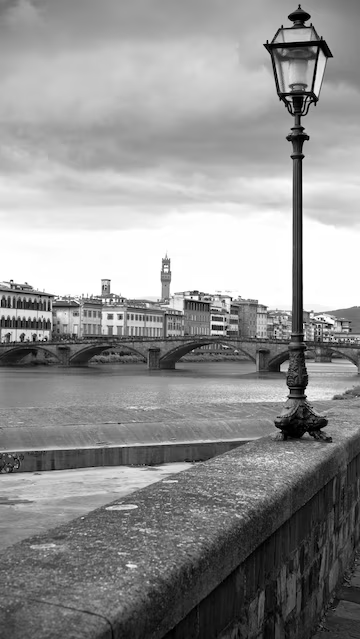The Rich Tapestry of Livorno’s Jewish Community: A Historical Journey
The history of the Jewish community in Livorno, Italy, is a narrative woven with the threads of tolerance, prosperity, and cultural exchange. This Tuscan city, known for its picturesque port and vibrant history, has been a haven for Jewish life since the 16th century. The Jewish community of Livorno, or Leghorn as it was known in English, has played a pivotal role in shaping the city’s identity, contributing to its economic development and cultural richness. In this article, we will explore the compelling history of Livorno’s Jewish community, a story of resilience and contribution that continues to resonate today.
Summary of Livorno’s Jewish History
- The Early Beginnings
- The Golden Age
- The 19th Century and Beyond
- World War II and the Holocaust
- The Post-War Era and Modern Times
- Cultural and Religious Heritage
The Early Beginnings
The story of the Jewish community in Livorno begins in the late 16th century when the Medici family, the rulers of Tuscany, invited Jews to settle in the city. The Medicis offered the Jewish population privileges and freedoms uncommon in Europe at the time. These included the right to practice their religion freely, the ability to trade and own property, and protection from the Inquisition. This policy was formalized with the “Livornina” decree issued by Ferdinando I de’ Medici in 1593, which aimed to transform Livorno into a thriving commercial hub.
The Golden Age
The 17th and 18th centuries are often referred to as the Golden Age for the Jewish community in Livorno. During this period, the community flourished both economically and culturally. Livorno became a center for international trade, attracting Jews from across the Mediterranean, including Spain, Portugal, and North Africa. The city’s port became a bustling marketplace where Jewish merchants played a significant role in the trade of goods such as textiles, precious metals, and coral.
Jewish bankers and financiers also contributed to the economic prosperity of Livorno, providing loans and financial services that supported the city’s commerce. The community’s growth led to the establishment of numerous synagogues, schools, and charitable institutions, which fostered a vibrant Jewish life.
The 19th Century and Beyond
As the 19th century unfolded, the Jewish community in Livorno faced new challenges and changes. The process of Italian unification, culminating in 1861, brought about significant shifts in the legal and social status of Jews in Italy. The emancipation of the Jews throughout the newly formed Kingdom of Italy led to the abolition of the special privileges that had been granted to the Jewish community in Livorno.
Despite these changes, the Jewish community continued to play an important role in the city’s life. The late 19th and early 20th centuries saw the emergence of new intellectual and political movements within the community, including Zionism. The community also contributed to the Italian cultural scene, with Jewish writers, artists, and musicians gaining prominence.
World War II and the Holocaust
The rise of Fascism in Italy and the subsequent alliance with Nazi Germany had a devastating impact on the Jewish community of Livorno. The implementation of racial laws in 1938 stripped Jews of their civil rights and led to the persecution and deportation of many community members during World War II. The city’s synagogues and Jewish institutions were destroyed or damaged during the war, and the once-thriving Jewish population was decimated.
The Post-War Era and Modern Times
In the aftermath of World War II, the Jewish community in Livorno worked to rebuild and restore its institutions. The community faced the challenge of re-establishing its presence in a city scarred by war and the Holocaust. While the Jewish population of Livorno never returned to its pre-war numbers, those who remained were determined to preserve their heritage and traditions.
Today, the Jewish community in Livorno is smaller but still active. The city is home to a synagogue, a Jewish museum, and several cultural organizations that work to maintain the legacy of Jewish life in Livorno. The community continues to celebrate its history and traditions, contributing to the multicultural tapestry of the city.
Cultural and Religious Heritage
The Jewish community of Livorno has left an indelible mark on the city’s cultural and religious landscape. The Tempio Maggiore, Livorno’s main synagogue, is a testament to the community’s resilience and commitment to preserving its religious heritage. The synagogue, rebuilt after World War II, stands as a symbol of the community’s continuity.
The Jewish cemetery of Livorno, with its ancient tombstones and mausoleums, offers a poignant glimpse into the history of the community. It serves as a reminder of the generations of Jews who have contributed to the city’s development.
The city’s Jewish museum, located in the Marini Oratory, provides visitors with an opportunity to learn about the history and culture of Livorno’s Jewish community. The museum’s collection includes religious artifacts, historical documents, and works of art that tell the story of Jewish life in Livorno.
In conclusion, the history of the Jewish community in Livorno is a rich and multifaceted narrative that reflects the broader history of Jews in Italy and the Mediterranean. From its early beginnings to the present day, the community has faced challenges and changes, yet it has remained a vital part of Livorno’s identity. As we explore the streets of Livorno and delve into its past, we are reminded of the enduring spirit of a community that has contributed so much to the city’s heritage.
For those interested in further exploring the cultural richness of Tuscany, including its Jewish heritage, please visit our category page on Tuscany activities and cultural exploration for more information.
FAQs About the Jewish Community in Livorno
What was the “Livornina” decree?
The “Livornina” decree was a set of privileges granted by Ferdinando I de’ Medici in 1593 to attract merchants and settlers, including Jews, to Livorno. It offered freedoms such as the right to practice religion, trade, and own property, which were instrumental in establishing Livorno’s Jewish community.
How did the Jewish community contribute to Livorno’s economy?
The Jewish community played a crucial role in Livorno’s economy, particularly during its Golden Age. Jewish merchants were involved in international trade, while Jewish financiers provided essential banking services that supported the city’s commercial activities.
What happened to the Jewish community during World War II?
During World War II, the Jewish community in Livorno suffered under Fascist racial laws and Nazi persecution. Many were deported to concentration camps, and the community’s synagogues and institutions were destroyed or damaged.
Is there still a Jewish community in Livorno today?
Yes, there is still a Jewish community in Livorno, although it is smaller than before World War II. The community maintains a synagogue, a museum, and cultural organizations that preserve and celebrate Jewish heritage in the city.
Can visitors learn about Livorno’s Jewish history?
Visitors can learn about Livorno’s Jewish history by visiting the city’s synagogue, Jewish museum, and cemetery. These sites offer insights into the community’s past and its contributions to Livorno’s cultural landscape.













